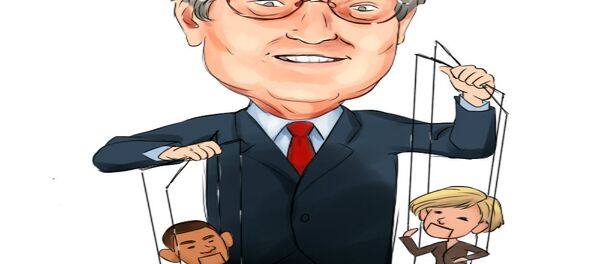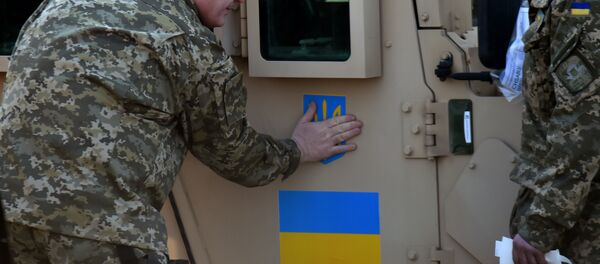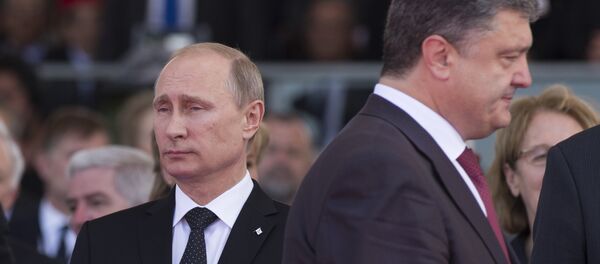In remarks made Friday at the opening of a subway station in Kharkiv, northeastern Ukraine, Poroshenko said he was certain that "only a few weeks are left before the doors of visa-free travel to united Europe are opened for Ukraine."
Furthermore, the president added that he was "confident that we will soon get a powerful financial cushion for reform in the form of a tranche from the European Union."
Moreover, influential officials including French Internal Affairs Minister Bernard Cazeneuve and his German counterpart Thomas de Maiziere have repeatedly spoken against liberalizing the EU's visa regime for Ukraine under the current circumstances, given the country's economic crisis and the ongoing civil war in the east.
In light of these realities, it remains unclear what exactly Poroshenko may have meant when talking about these "few weeks." In any case, Ukrainian and Russian political scientists had a few ideas of their own.
For his part, Vladimir Kornilov, a Ukrainian national and the director of the Center for Eurasian Studies, couldn't hold back his cynicism. "'A few weeks' could mean a hundred or even two hundred weeks," he noted. "After all, he didn't say '2-3 weeks'. And compared with his promises of a visa-free regime as far back as 2011, when he was foreign minister, and again in 2014, in 2015, etc., this promise is no more specific."
Ultimately, the analyst suggested that he has the impression "that Poroshenko went on vacation somewhere, forgot about reality, arrived in Kharkiv and began to speak as though he is unaware of the changes taking place in the country."
Even now, Kornilov noted, Ukrainians are actively flooding into Poland for work. "And that's without any visa-free system! If it's introduced, I can assure you that farmers will sell their property, get a train ticket to Warsaw…and go work as hired hands for a pittance, which will still be better than in impoverished 'Eurointegrationist' Ukraine."
For his part, Vadim Trukhachev, a professor of foreign policy and regional studies at the Russian State University of the Humanities, suggested that while it's not possible to say for certain that Ukraine won't receive a visa-free regime, the chances don't look good.
"The country is facing a war on its territory, and the living standards are so poor that Bulgaria and Romania, which are poor by European standards, look like real islands of prosperity compared against Ukraine," the analyst noted.
As for President Poroshenko's promises of financial assistance, Trukhachev suggested that the claim that 'someone from abroad' will help Ukraine "has been one of the favorite expressions formulated by Poroshenko and other Ukrainian officials over the past two years. But the EU simply cannot afford to help Ukraine in any major way. The country is too large, and too poor. Moreover, previous tranches of assistance have disappeared into a bottomless pit – they were simply stolen. And so the promise of a tranche of help from the EU may just be Poroshenko's fantasy – a blatant, deliberate deception of his own citizens."
"Today, European officials are in a very difficult position. On the one hand, they need to support Poroshenko, so that he could show Ukrainians at least some achievement. On the other, is it really possible to end visa requirements with a country that's at war? Croatia was provided a visa-free regime only after the end of hostilities, and that country is smaller than Ukraine, and closer to Western Europe in every sense. The flows of illegal labor, Ukrainian law enforcement's inability to control their own territory, the spread of weapons from the warzone in the east – all this is too great a risk for Europe, and something EU officials cannot ignore."




